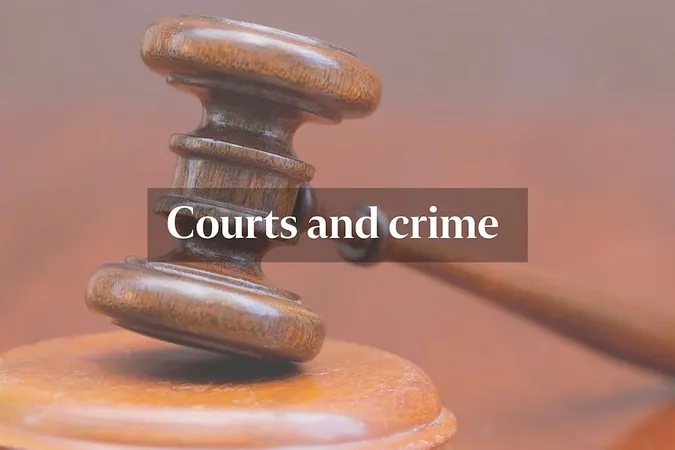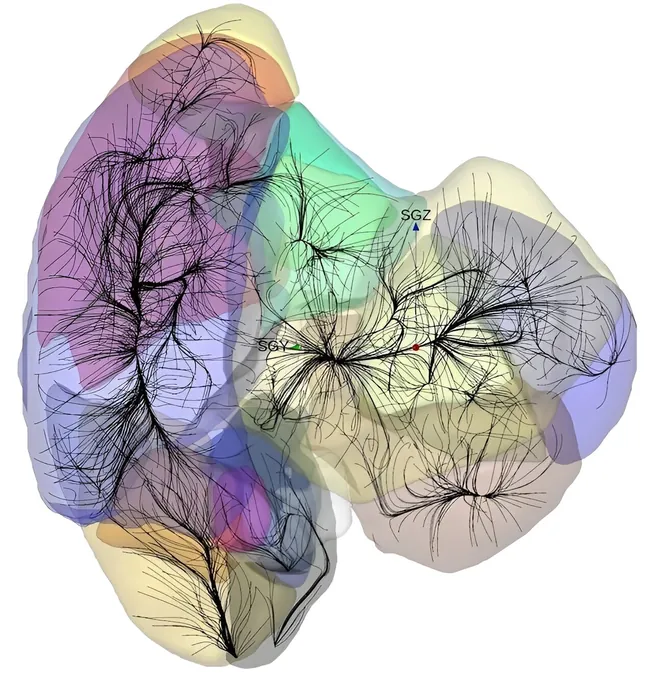
Shocking Acquittal in Graft Case as Court Slams Investigation Procedures!
2024-10-11
Author: Wei Ling
Introduction
In a stunning turn of events, a Singapore district judge has acquitted two men accused of corruption, citing significant flaws in the Corrupt Practices Investigation Bureau's (CPIB) procedures. The ruling, made on October 11, has sparked widespread discussions on the integrity of investigative bodies and the standards they must uphold.
The Case Background
The individuals at the center of this case were Pay Teow Heng, 56, a director at Tiong Seng Contractors (TSC), and Pek Lian Guan, 59, the firm's managing director. They faced serious allegations of engaging in graft with Henry Foo Yung Thye, a former deputy group director at the Land Transport Authority (LTA). Prosecutors claimed that Mr. Pay had provided approximately $350,000 in loans to Mr. Foo between 2017 and 2018 with the intent of furthering TSC's business interests.
Connection to Larger Scandal
Significantly, this case is intertwined with a larger scandal; in September 2021, Mr. Foo was sentenced to 5½ years in prison after being found guilty of accepting over $1.24 million in bribes from various contractors. The ongoing fallout from these revelations continues to puzzle industry stakeholders, as they grapple with what this means for construction contracts and business ethics in Singapore.
Concerns Raised by the Judge
During this trial, Judge Soh Tze Bian pointed out grave concerns regarding the CPIB's investigative methods. He noted that the lead investigating officer had attempted to misrepresent Mr. Pek's statements, suggesting a deliberate skewing of facts to build a case. This was most evident when Officer Tan Kiat Tat, known as IO Jeffrey, confessed to framing Mr. Pek’s statements in a manner that implied guilt rather than reporting factual accounts objectively.
Prosecution's Challenge
The judge stressed that the prosecution had not established beyond a reasonable doubt that the loans given to Mr. Foo were corrupt in nature. Mr. Pay's defense argued that he extended financial help out of sympathy towards Mr. Foo, who claimed to be under financial duress due to his mother’s gambling habits.
Critique of Investigative Procedures
In a bombshell critique, the judge remarked that the CPIB officers showed “blatant disregard for the truth,” emphasizing that their statements were not only unreliable but also selectively recorded to support an unfounded narrative of guilt. This raises serious questions about the accountability of public agencies in Singapore.
Reaction to the Verdict
Following the verdict, Mr. Pay expressed gratitude for the support of his family and friends, who stood by him throughout what he described as a harrowing five-year ordeal. Meanwhile, Mr. Pek expressed relief and satisfaction at proving his innocence, highlighting the mental toll the accusations had taken on him and his family.
Future Implications
As the dust settles on this high-profile case, speculation remains about whether the Attorney-General's Chambers will appeal the decision. A representative indicated that they are still reviewing the judgment. This ruling marks a critical moment for Singapore's legal landscape, calling into question how investigations into corruption are conducted and the standards by which they are judged.
Conclusion and Questions Ahead
As this drama unfolds, many questions loom: Will the CPIB face repercussions for its flawed investigation? What does this mean for future corruption cases in Singapore? And how may this decision impact trust in government agencies? The story is far from over, and the public will be watching closely for developments.




 Brasil (PT)
Brasil (PT)
 Canada (EN)
Canada (EN)
 Chile (ES)
Chile (ES)
 España (ES)
España (ES)
 France (FR)
France (FR)
 Hong Kong (EN)
Hong Kong (EN)
 Italia (IT)
Italia (IT)
 日本 (JA)
日本 (JA)
 Magyarország (HU)
Magyarország (HU)
 Norge (NO)
Norge (NO)
 Polska (PL)
Polska (PL)
 Schweiz (DE)
Schweiz (DE)
 Singapore (EN)
Singapore (EN)
 Sverige (SV)
Sverige (SV)
 Suomi (FI)
Suomi (FI)
 Türkiye (TR)
Türkiye (TR)